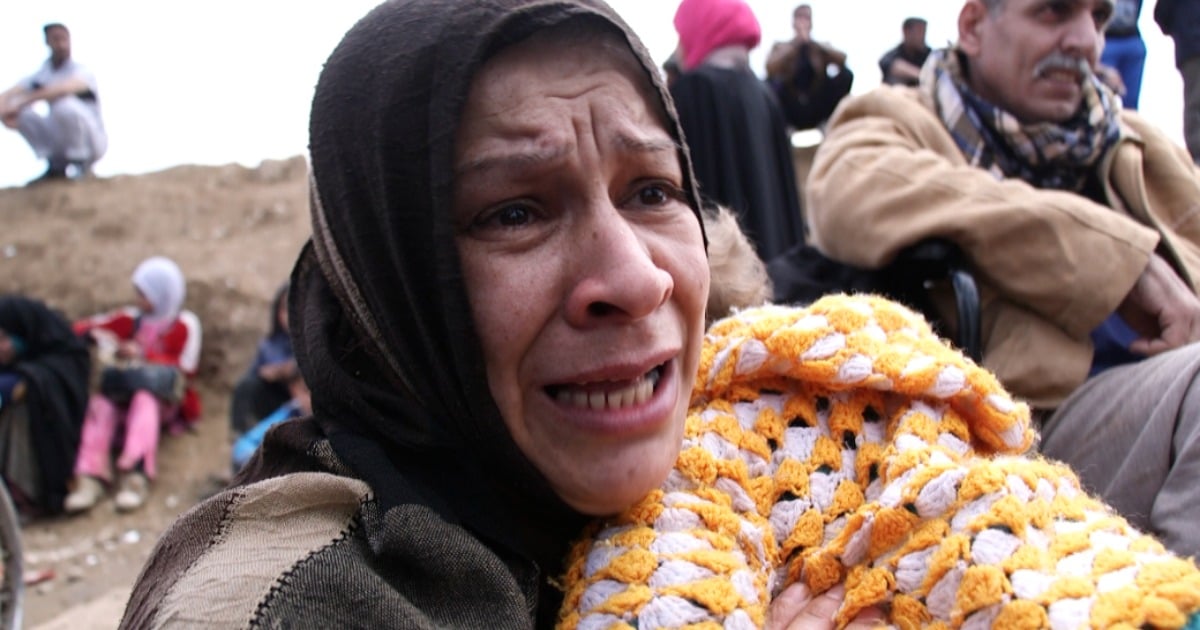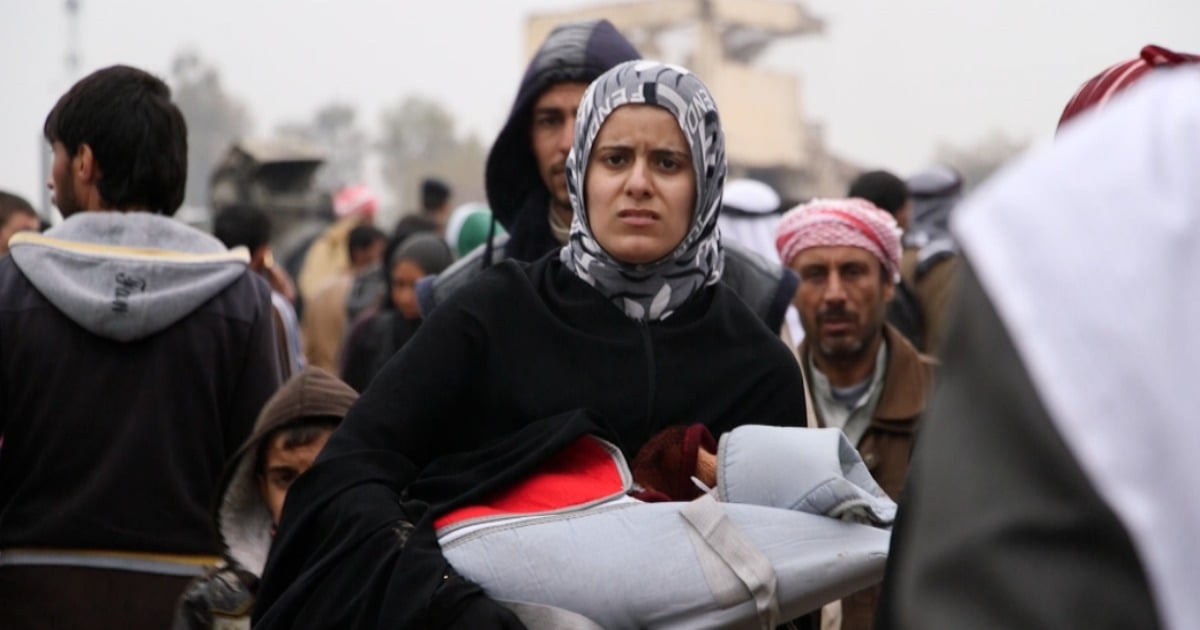The main transit area of Hammam Al Alil camp just south of Mosul is hell on earth.
Exhausted and traumatised families stream off buses by the hour, escaping the city with not much more than their lives.
“Whose daughter is this? Dear families, whose daughter is this?” a volunteer shouts, carrying a crying toddler on his shoulders as he desperately looks for her mum.






Top Comments
These must be those nasty refugees that we panic about who want to hurt us when in reality they are just poor people fleeing from a situation we helped create
I am so sorry I read the headline of this article and thought it was about parenting horror stories like the time my son had an earache on a plane and a year later someone told me about phenergan. It wasn't, how can my life possibly compare to the women living in real hell, again I'm so very sorry